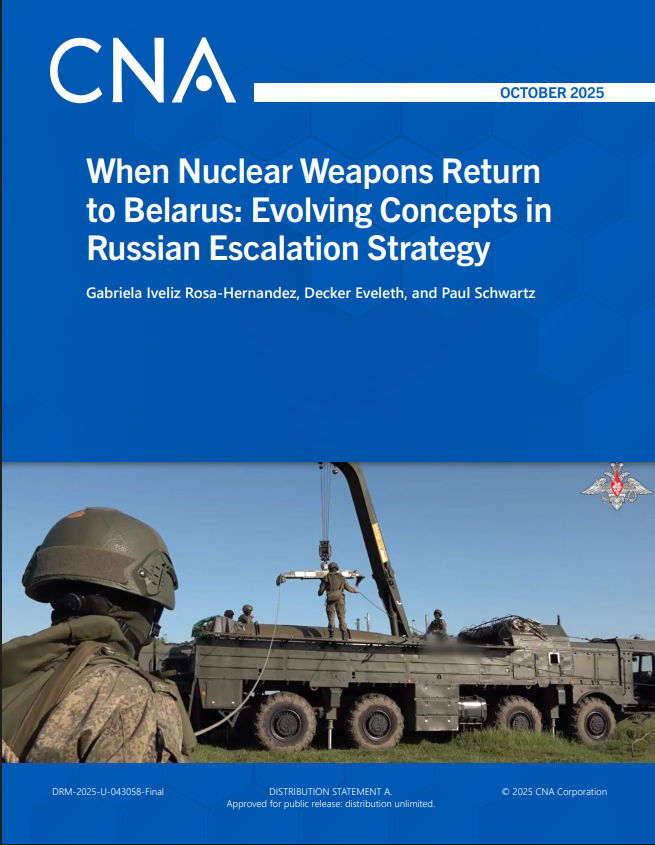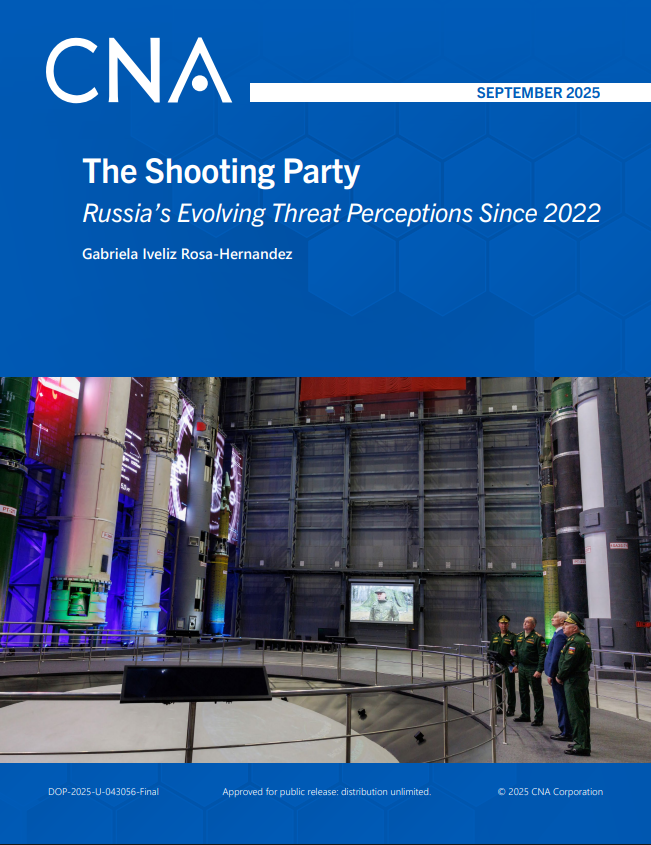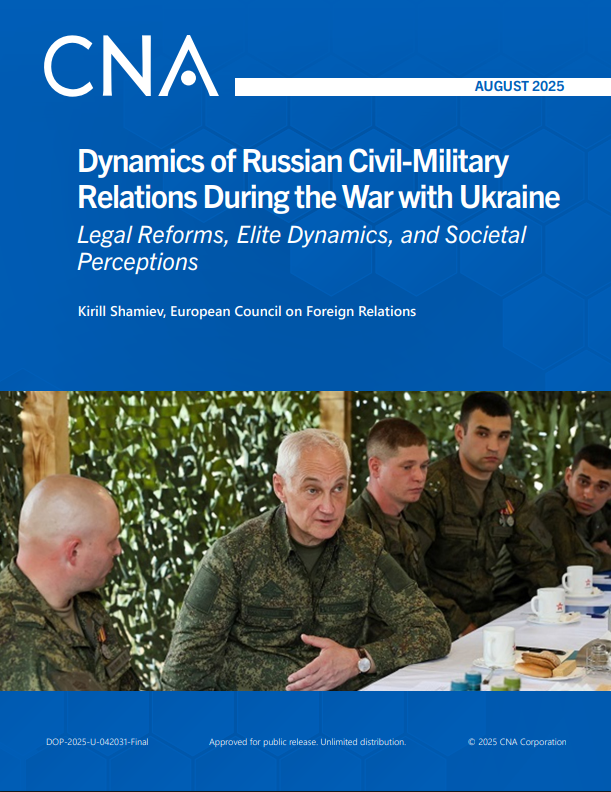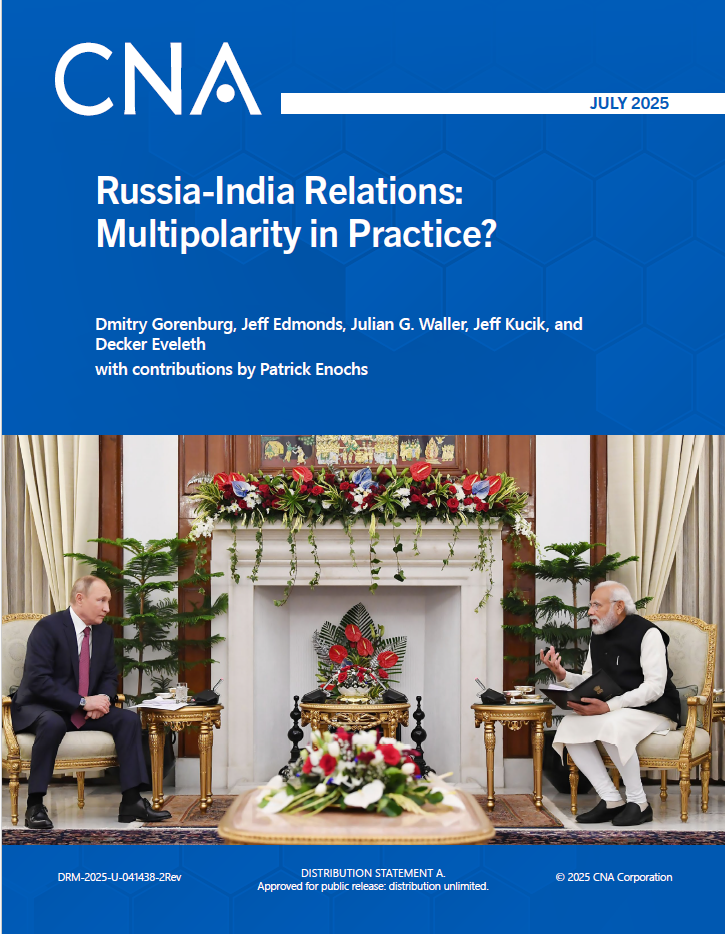Wedge strategies in international relations are efforts by a competitor to weaken, dissolve, or prevent opposing alliances. To examine the wedge strategies exhibited by China and Russia against the US, CNA analyzed six cases of Chinese and Russian statecraft targeting US alliances. This study finds that despite China’s and Russia’s initial preference for carrot (reward-based) strategies, they often resort to sticks (coercive and subversive strategies). But these coercive and subversive wedge strategies by China and Russia in international competition often backfire and fail. Generally, reward-based wedge strategies are more effective. The report offers several recommendations for exploiting opportunities and mitigating risks associated with competitor wedge strategies.
The contest for allies and partners is among the most consequential domains of strategic competition. Because the US enjoys a worldwide network of alliances and partnerships, a key feature of this contest involves competitor efforts to weaken Washington’s advantage. The international relations literature describes such efforts to weaken, dissolve, or prevent opposing alliances as wedge strategies. The purpose of this study is to shine a light on the nature of contemporary Chinese and Russian wedge strategies, inform policies to promote their failure, and contribute to a growing scholarly literature on the phenomenon of alliance wedge strategies more broadly.
Specifically, this study seeks answers to the following research questions: (1) What wedge strategy tendencies do China and Russia exhibit toward US alliances? (2) To what extent have these strategies succeeded, failed, or backfired on a given competitor? (3) What do the findings to the questions above reveal about which type of wedge strategy—carrot- or stick-based—is most likely to succeed? and (4) What conditions promote these outcomes?
To answer these questions, this study examines six cases of Chinese and Russian statecraft targeting US alliances:
- Russia’s failure to reinforce German neutrality during the Ukraine crisis (2014–2018)
- Russia’s failure to divide Greece and the North Atlantic Treaty Organization (NATO) over (North) Macedonia’s NATO membership (2018–2019)
- Russia’s success dividing Turkey and NATO through military sales (2016–2019)
- China’s failure to prevent South Korea’s deployment of the US military’s Terminal High Altitude Area Defense system (2013–2017)
- China’s failure to weaken the Australian-US alliance during Canberra’s last two governments (2016–2021)
- China’s mixed record in weakening the Philippines-US alliance during the administration of President Rodrigo Duterte (2016–2021)
In addition to these six contemporary cases, this report also presents three historical wedge strategy cases: (1) Germany’s failed attempt to divide the Entente Cordiale between Britain and France during the First Moroccan Crisis (1904–1906), (2) the People’s Republic of China’s (PRC’s) failed attempt to prevent the US from concluding a mutual defense treaty with Taiwan during the First Taiwan Strait Crisis (1954–1955), and (3) the successful bid of the US to “flip” Egypt from a pro-Soviet proxy to an American partner in the 1970s. The combination of historical and contemporary cases positions us to contribute both to scholarly debates regarding the relative effectiveness of carrot-based (reward wedging) and stick-based (coercive or subversive wedging) strategies and to policy discussions regarding how the US should counter competitor wedging efforts.
Key Findings
First, among our contemporary cases, China and Russia frequently exhibit an initial preference for carrot (i.e., reward-based) strategies. Despite this initial preference, however, they often resort to coercive and subversive strategies after their rewards fail to produce positive wedging outcomes. Second, China’s and Russia’s coercive and subversive strategies have a poor record of accomplishment. In some cases, they simply fail. In others, Chinese and Russian strategies backfire, such as by triggering balancing responses that strengthen rather than weaken opposing alliances. This outcome is seen most clearly in the case of Australia, which, following years of PRC coercion and subversion, has drawn markedly closer to Washington, including reengaging with the Quadrilateral Security Dialogue (the Quad) and forming the Australia-United Kingdom-United States security partnership. Third, our study provides evidence that reward-based wedge strategies are generally more effective than coercive or subversive strategies. Fourth, we demonstrate that the literature’s concept of reward power, or a state’s ability to credibly provide benefits to a target on that target’s priority issue(s), serves as a critical determinant of wedging outcomes in these cases.
Implications and recommendations
The finding that Beijing and Moscow frequently fail in their efforts to divide US alliances and occasionally strengthen rather than weaken them yields several implications and recommendations for US policy. They include the following:
Exploit divider coercive and subversive wedging: The risks that dividers undertake in executing stick-based wedge strategies present opportunities to exploit. As long as China and Russia tend toward stick-based strategies, the US should posture itself to capitalize on partner nation balancing impulses.
Seize a potentially transient window of opportunity: The Chinese and Russian governments adapt over time. If we can observe their poor record of wedging effectiveness, so can they. Washington should recognize the potentially transient nature of the current moment and pursue its more ambitious objectives vis-à-vis bilateral and multilateral relationships.
Mitigate coercive and subversive wedging risks: Washington can take steps to mitigate the effect of competitor stick-based wedging. Recommendations include the following: (1) work with allies to offset their vulnerabilities to external coercion; (2) monitor attempts to subvert partner nation governments and, as appropriate, expose them; and (3) promote democracy-building programs that deprive competitors of opportunities to subvert.
Mitigate reward wedging risks: Because reward wedging is generally most effective, the US should consider the following steps to mitigate its effects: (1) monitor for areas in which China and Russia are comparatively better positioned to credibly offer US allies rewards of high value, (2) consolidate alliance-deepening priorities now to raise the costs of an ally’s defection later, and (3) deepen ties between US and partner nation institutions, such as security services, to hedge against the political variations of rotating leaders.
Limit deeper Chinese-Russian alignment: The findings of this report suggest that Washington’s most effective wedge strategy option vis-à-vis China and Russia will likely eventually involve reward-based approaches toward either Beijing or Moscow. In the near term, however, geopolitical realities constrain Washington’s room for accommodation. Washington may find guidance in its past approaches to the Sino-Soviet alliance during the Cold War, when it deployed relatively coercive policies toward both competitors until fissures in their relationship created reward wedging opportunities.
Download reportApproved for public release: distribution unlimited.
Details
- Pages: 134
- Document Number: IRM-2021-U-031302-Final
- Publication Date: 5/25/2022




